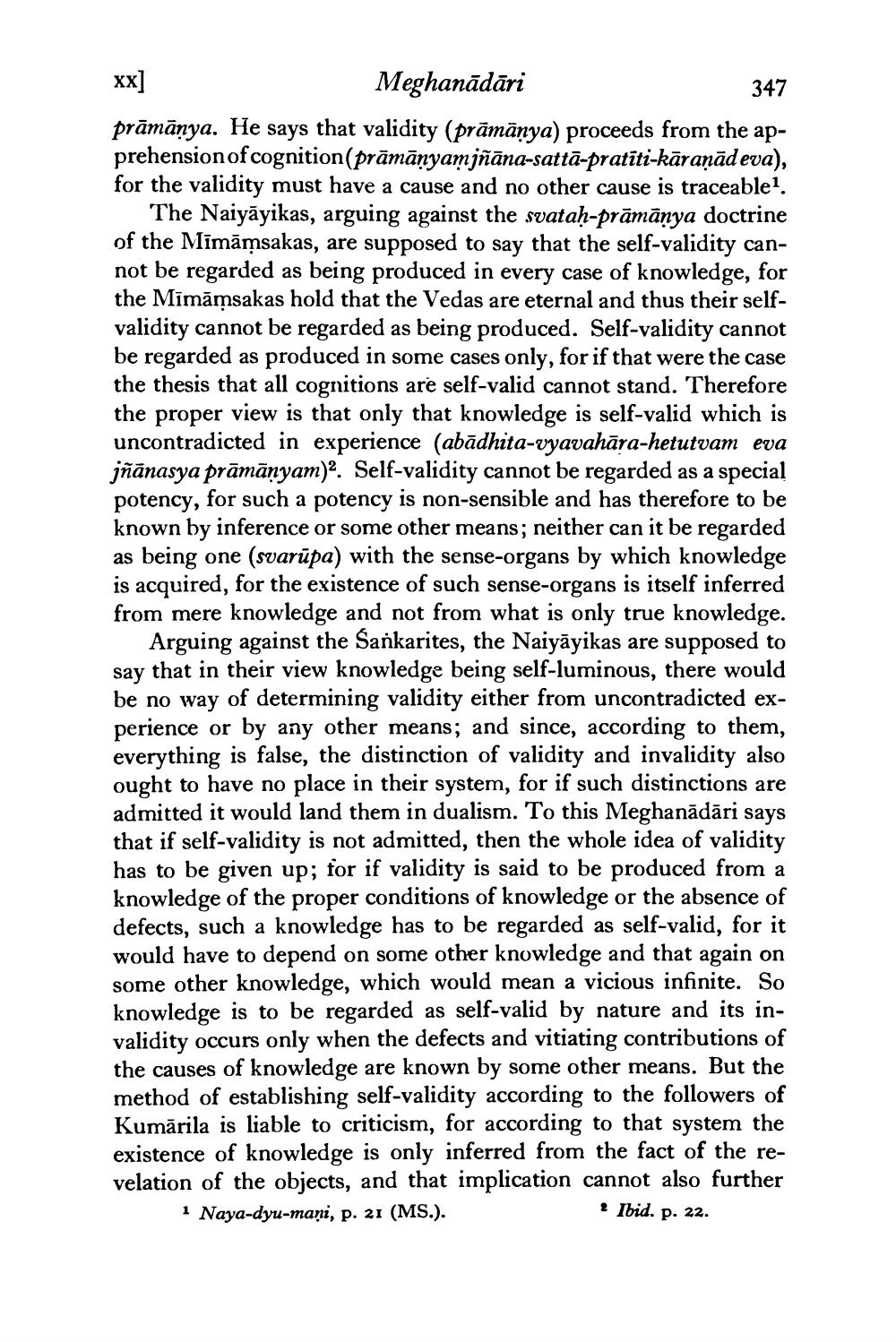________________
Xx] Meghanādāri
347 prāmānya. He says that validity (prāmānya) proceeds from the apprehension of cognition(prāmānyamjñāna-sattā-pratīti-kāraņād eva), for the validity must have a cause and no other cause is traceable1.
The Naiyāyikas, arguing against the svataḥ-prāmānya doctrine of the Mīmāņsakas, are supposed to say that the self-validity cannot be regarded as being produced in every case of knowledge, for the Mīmāmsakas hold that the Vedas are eternal and thus their selfvalidity cannot be regarded as being produced. Self-validity cannot be regarded as produced in some cases only, for if that were the case the thesis that all cognitions are self-valid cannot stand. Therefore the proper view is that only that knowledge is self-valid which is uncontradicted in experience (abādhita-vyavahāra-hetutvam eva jñānasya prāmānyam). Self-validity cannot be regarded as a special potency, for such a potency is non-sensible and has therefore to be known by inference or some other means; neither can it be regarded as being one (svarūpa) with the sense-organs by which knowledge is acquired, for the existence of such sense-organs is itself inferred from mere knowledge and not from what is only true knowledge.
Arguing against the Sankarites, the Naiyāyikas are supposed to say that in their view knowledge being self-luminous, there would be no way of determining validity either from uncontradicted experience or by any other means; and since, according to them, everything is false, the distinction of validity and invalidity also ought to have no place in their system, for if such distinctions are admitted it would land them in dualism. To this Meghanādāri says that if self-validity is not admitted, then the whole idea of validity has to be given up; for if validity is said to be produced from a knowledge of the proper conditions of knowledge or the absence of defects, such a knowledge has to be regarded as self-valid, for it would have to depend on some other knowledge and that again on some other knowledge, which would mean a vicious infinite. So knowledge is to be regarded as self-valid by nature and its invalidity occurs only when the defects and vitiating contributions of the causes of knowledge are known by some other means. But the method of establishing self-validity according to the followers of Kumārila is liable to criticism, for according to that system the existence of knowledge is only inferred from the fact of the revelation of the objects, and that implication cannot also further 1 Naya-dyu-mani, p. 21 (MS.).
? Ibid. p. 22.




